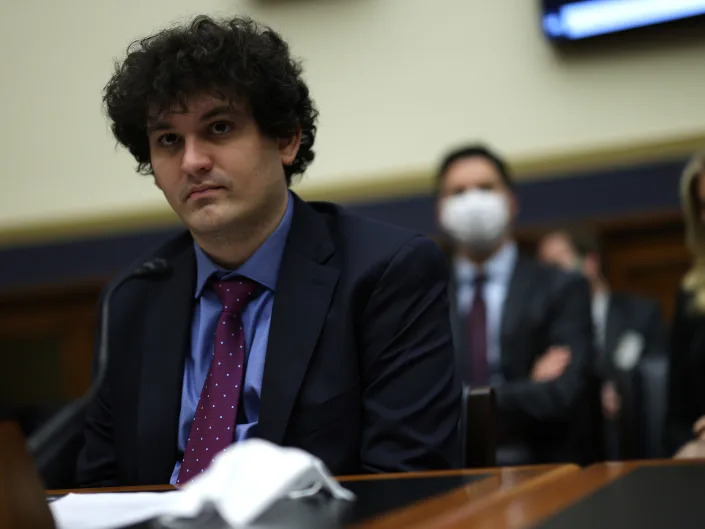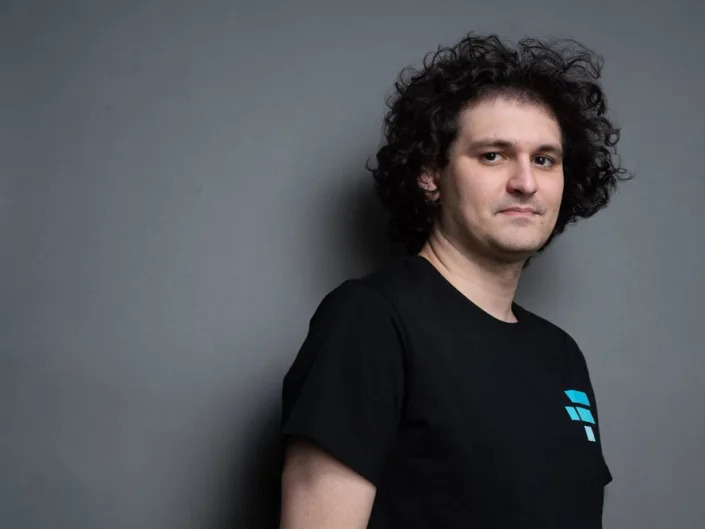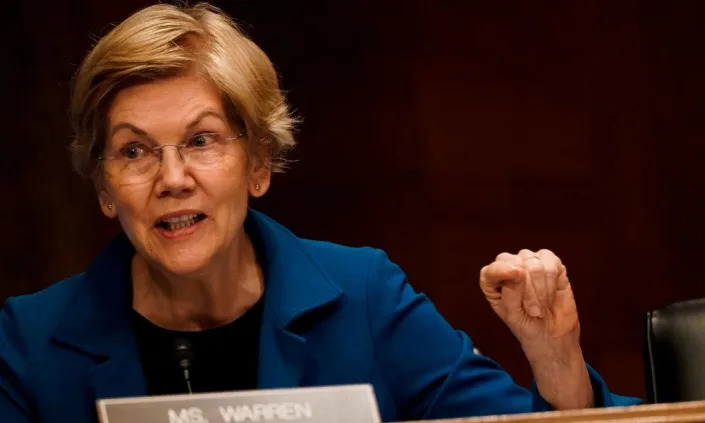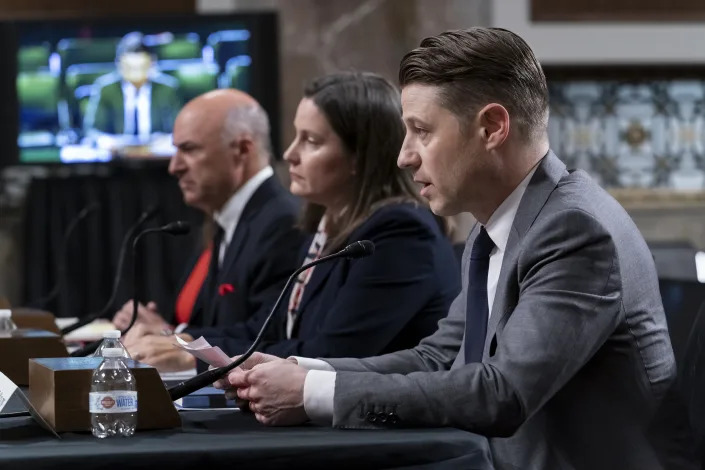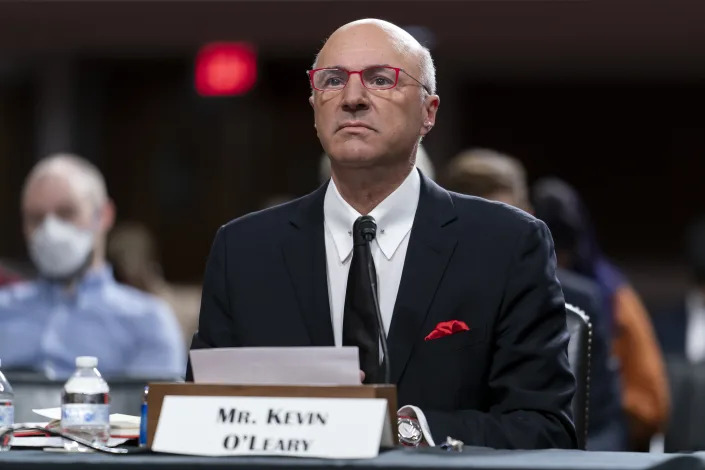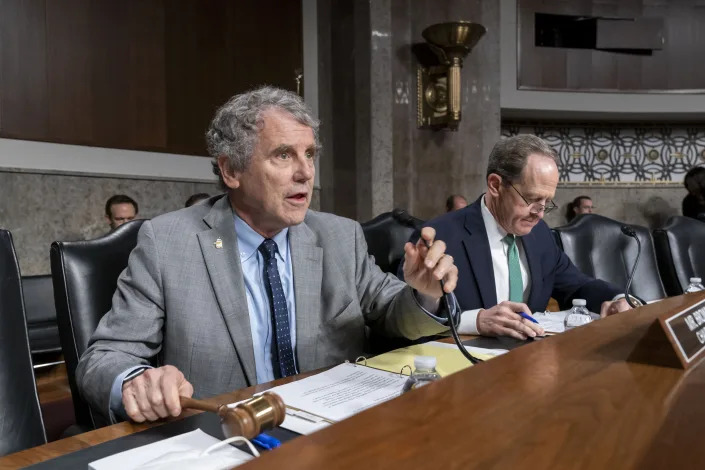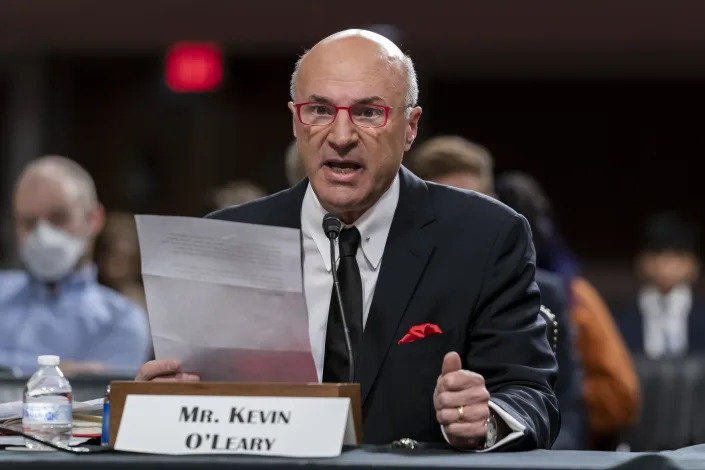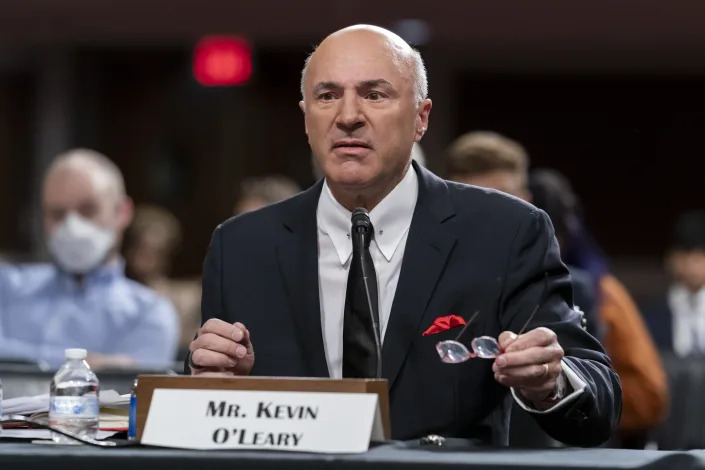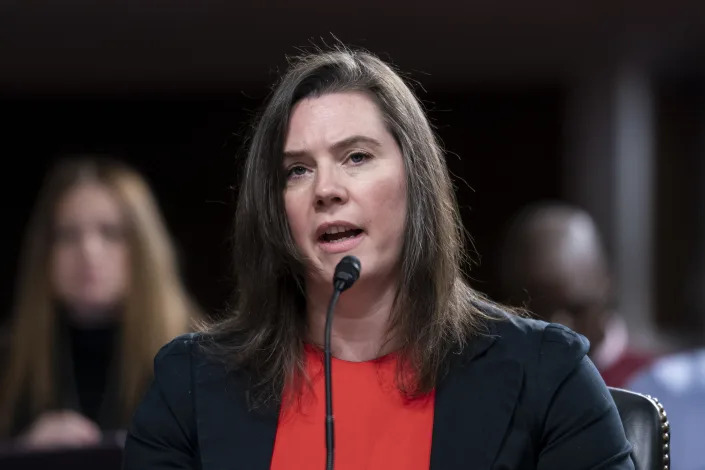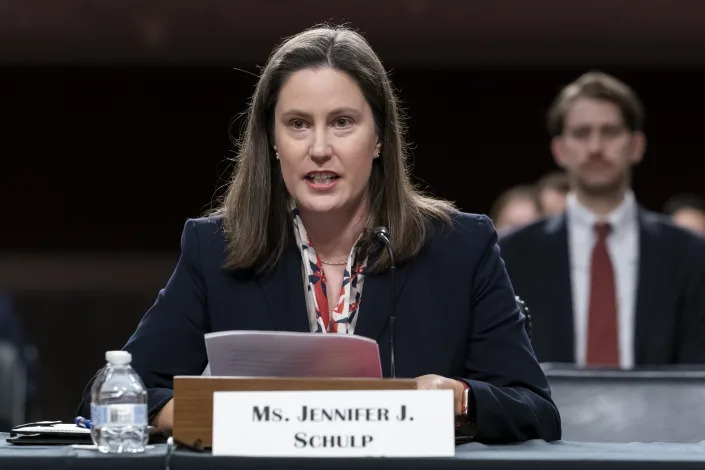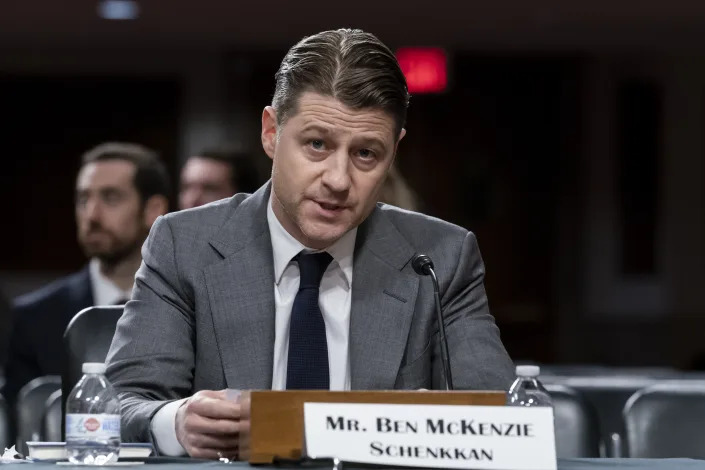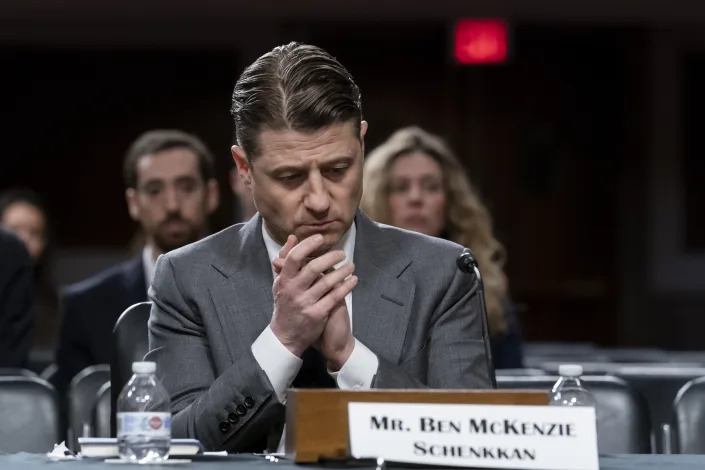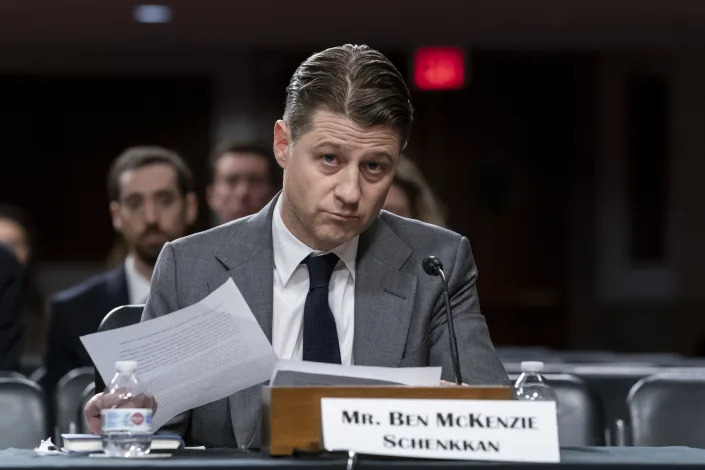CRIMINAL CRYPTO CAPITALI$M 3.0
Binance boss CZ reportedly warns the coming months will be 'bumpy' for the crypto exchange, as it unfreezes USDC withdrawals
Zahra Tayeb
Wed, December 14, 2022
Changpeng Zhao, CEO of Binance.
Binance's CEO warned staff of "bumpy" times ahead, after it resumed withdrawals on Tuesday.
FTX's collapse has drawn scrutiny on Binance, he said, after it faced billions of dollars of outflows in a matter of days.
Changpeng Zhao welcomed the "stress test" of withdrawals however, saying it builds credibility.
Binance CEO Changpeng Zhao warned staff of difficult times ahead as the crypto exchange weathers scrutiny over its reserves.
In a company memo sent to employees seen by Bloomberg, Zhao, commonly known as "CZ" said the crypto industry is experiencing a "historic moment" in the wake of FTX's shocking collapse, but reassured staff that Binance "will survive any crypto winter."
"While we expect the next several months to be bumpy, we will get past this challenging period — and we'll be stronger for having been through it," he wrote. He added that FTX's problems have invited "a lot of extra scrutiny and tough questions" on Binance, referring to over $2 billion in customer withdrawals it faced on Tuesday. The bank-like run forced Binance to halt USDC withdrawals.
The large outflow of customer funds came amid concerns over the exchange's proof of reserves report published last week, and allegations that Binance has been involved in money laundering practices.
On Wednesday however, Binance announced it unfroze customer withdrawals, while Zhao noted deposits are returning to the exchange in a sign of stability.
"Things seem to have stabilized. Yesterday was not the highest withdrawals we processed, not even top 5. We processed more during LUNA or FTX crashes. Now deposits are coming back in," Zhao tweeted.
The crypto billionaire even welcomed the "stress test" of withdrawals, saying: "I actually think it is a good idea to 'stress test withdrawals' on each CEX on a rotating basis." He added it helps build the credibility for exchanges that pass the test.
Crypto exchange Binance freezes withdrawals of stablecoin USDC as rattled investors pull $2 billion in funds
George Glover
Tue, December 13, 2022
Crypto exchange Binance has paused withdrawals of the key stablecoin USDC, chief executive Changpeng Zhao said Tuesday.
Leading crypto exchage Binance temporarily halted withdrawals of the USDC stablecoin on Tuesday.
Customers have pulled over $2 billion in funds in 24 hours as concerns about its stability grow.
Questions about Binance's reserves and a potential investigation are in focus after FTX's collapse.
Binance has temporarily paused withdrawals of a major stablecoin after customers pulled over $2 billion in funds, as worries about the crypto exchange's stability grow after the collapse of FTX.
The world's largest crypto exchange will freeze all withdrawals of USD Coin while it conducts a "token swap" to boost its holdings of the dollar-pegged token, CEO Changpeng Zhao said Tuesday.
"On USDC, we have seen an increase in withdrawals," the Binance boss, commonly known as "CZ", tweeted.
Binance has faced questions over transparency about its reserves and reports of an imminent investigation by US prosecutors in recent days, which have rattled some crypto investors in the wake of the collapse of now-bankrupt rival FTX.
Binance requires traditional fiat currency held by a New York bank to swap some of its Paxos Standard and Binance USD stablecoins for USDC, so that it has sufficient holdings of the token for withdrawals to continue, Zhao added.
"The banks are not open for another few hours," he said. "We expect the situation will be restored when the banks open."
USDC has its value fixed at $1, and it is used by some crypto traders as a place to park their cash at times of high uncertainty or volatility.
The stablecoin maintained its dollar peg Tuesday, while Binance Coin — a native token that is seen as reflecting customers' trust in the exchange — had slipped 5.12% to trade at just under $269 at last check Tuesday.
Binance halted USDC withdrawals after customers pulled over $2 billion worth of cryptocurrency from the exchange Monday, according to data from blockchain intelligence platform Nansen.
Those withdrawals came after top accountants and legal experts slammed a proof of reserves report published last week, where Binance claimed its bitcoin holdings were overcollateralized – which would mean it held more than enough of the token to cover its losses in case of a default.
US prosecutors are revving up to charge CZ's crypto group for violating anti-money-laundering regulations from 2018 onwards, Reuters reported Monday. The report said Binance processed over $10 billion worth of illegal payments in 2022.
In follow-up tweets Tuesday, CZ called on Binance customers to avoid acting based on "FUD" – an acronym for the feelings "fear, uncertainty, and doubt" that crypto bulls believe drive some traders away from the digital asset space.
Crypto investors are on alert for any sign that the problems that helped pull down FTX could spread to other platforms. The now-bankrupt crypto exchange collapsed after facing a liquidity squeeze, and over 1 million customers may have lost money, according to NPR.
At the request of the US, authorities in the Bahamas arrested FTX's founder and former CEO Sam Bankman-Fried on Monday. He faces allegations he illegally misused billions of dollars in FTX customer funds to prop up sister trading firm Alameda Research.
Binance representatives declined to comment further on this story.
Read more: Nouriel Roubini slams Binance boss CZ as a 'walking time bomb' and says crypto is totally corrupt
Binance’s proof-of-reserves is just another black box
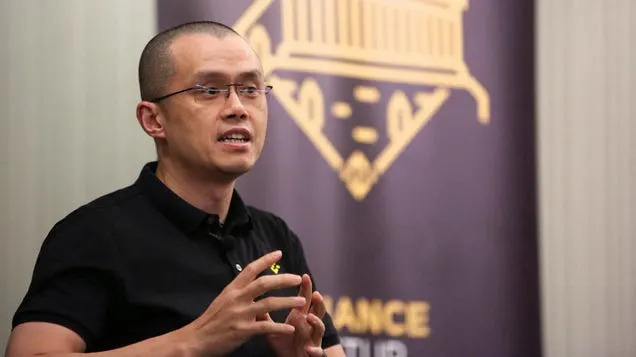
Mon, December 12, 2022
When the crypto market melted down, Binance appeared as both the main antagonist and market savior. The exchange started the run that felled its rival, FTX, and has since promised to help bail out struggling crypto firms.
Binance also led the way in offering to prove to its customers and the broader market that it has the assets it says it does, which is known as proof-of-reserves. Specifically, Binance claims that it performed a “Merkle tree” proof-of-reserves audit, which is a cryptographic way of collecting blockchain data and making it more easily accessible
At first glance, the breakdown of Binance’s assets and liabilities shows a $245 million hole. However, Binance’s auditor Mazar claims that this is because Binance holds collateral for lent out bitcoin that was out of the audit’s “scope.”
Former SEC regulator John Stark told Decrypt that there were several red flags with the audit, including using Mazar, instead of a big-four auditing firm, and being able to dictate the terms of the audit. Mazar also did not issue an official opinion on the effectiveness of the audit it performed.
The future of Binance’s finances are also in question as the US Department of Justice (DOJ) weighs charging the exchange with anti-money laundering and sanctions violations, according to a new report in Reuters.
The exchange’s lawyers are allegedly talking with the DOJ about the possibility of entering into plea deals for exchange executives, including CEO Changpeng Zhao, instead of fining the exchange. Binance didn’t immediately respond to a request for comment from Quartz.
How did we get here?
November 2: CoinDesk published a story revealing that a chunk of Alameda’s balance sheet was made up of FTX’s native exchange token FTT.
November 6: Binance sells its FTT tokens, pushing down the price of FTT and starting a run on FTX.
November 8: Binance offers to buy rival FTX.
November 9: Binance rescinds the buyout offer.
November 11: FTX files for Chapter 11 bankruptcy.
November 25: Binance says it will set up a $1 billion recovery fund for the industry.











